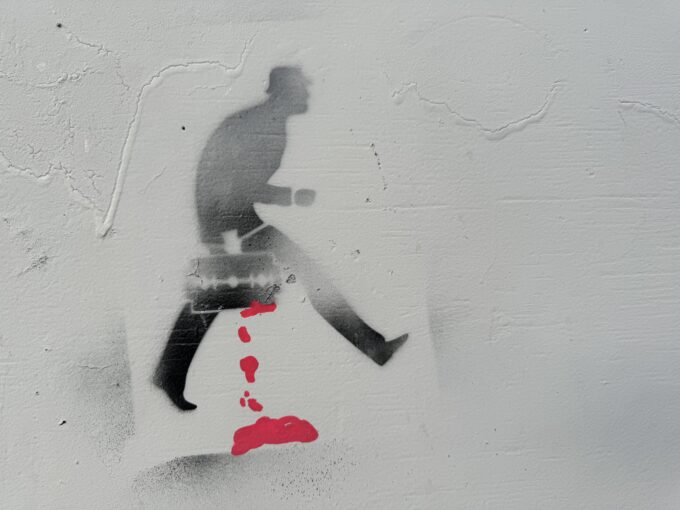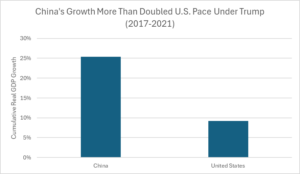Defense Secretary Lloyd Austin’s recent decision to revoke the plea agreements for three defendants in the 9/11 case at Guantanamo, including alleged mastermind, Khalid Sheikh Mohammed (KSM), was at once shocking and predictable: shocking that the Defense Secretary would step in deus ex machina at the eleventh hour to scuttle a deal negotiated by the convening authority whom Austin had himself designated to oversee the military commissions; yet also predictable that the U.S. government would somehow find a way perpetuate the cycle of lawlessness at Guantanamo.
Secretary Austin’s decision is the latest in a series of failures to bring the perpetrators of the 9/11 attacks to justice. In the “legal train wreck” of the 9/11 case, a few key moments stand out:
- In November 2001, rather than relying on a federal court system that had consistently prosecuted terrorism suspects without abandoning due process, the Bush administration system created military commissions at Guantanamo to deny the basic elements of a fair trial.
- The Bush administration also denied detainees any protections under the Geneva Conventions and instead embraced the use of torture.
- In 2006, following the Supreme Court’s decision invalidating the military commissions, President Bush doubled down, persuading Congress to create new commissions and transferring KSM and the other 9/11 defendants from secret CIA black sites to Guantanamo to face trial there.
- In 2011, President Obama, after announcing he would bring the 9/11 defendants to federal court in New York to face charges, caved into political pressure and reversed his decision.
- Since then, Congress has continued to enact legislation barring the transfer of any Guantanamo detainee to the U.S. for any purpose, including for trial.
- Meanwhile, the 9/11 case has been mired in delays because of the defendants’ torture and the decision to try them before a military commission.
The plea agreement represented an attempt to break the logjam and achieve closure. Like all such agreements, it was a compromise: the defendants would admit guilt and waive their right to appeal in exchange for avoiding the death penalty.
But the announcement of the deal ignited a political backlash. Sen Tom Cotton (R-AR) denounced the Biden-Harris administration for “choos[ing] the side of killers and criminals over law-abiding Americans” and threatened to introduce legislation prohibiting any outcome that did not result in the death penalty. In explaining his decision, Secretary Austin stated, “the families of the victims, our service members, and the American public deserve the opportunity to see military . . . commission trials carried out.” The message was clear: the death penalty must remain on the table.
Victims and their families unquestionably have the right to see the perpetrators of the 9/11 attacks held accountable. And offering sentencing concessions to a defendant who pleads guilty to a heinous crime involving thousands of victims remains controversial even in international criminal tribunals.
But while some families opposed the plea deal, others did not—and with good reason. They recognized that the deal represented the best, and only, remaining option for a final resolution of the 9/11 case. As one member of Sept. 11th Families for Peaceful Tomorrows explained, “The system has not worked for a long time.”
The victims’ anger and frustration should be directed at the U.S. government for so badly botching one of the most important cases in US history by torturing the defendants. Torture — KSM, for example, was waterboarded more than 180 times — did not just violate the rights of detainees; as UN Special Rapporteur Fionnuala Ní Aoláin stated, it was also a “betrayal of the rights of victims” by fatefully tainting the case against the accused. That error was compounded by insisting on using jerry-rigged military commissions where even the most basic questions, including which provisions of the Constitution apply, remain uncertain. In such circumstances, a life sentence is the only feasible and acceptable outcome.
Secretary Austin’s decision is now being challenged in the military commissions themselves, where the judge will consider whether Secretary Austin violated the commission’s rules and exercised undue command influence over the case. It is possible the military judge will resist the Secretary’s interference. Either way, the Secretary’s actions will be the subject of later appeals, adding to the plethora of questions that will embroil the commissions in more controversy for years to come.
A comparison to how the United States chose to deal with Nazi leaders, who were responsible for the deaths of millions, is particularly instructive.
Near the end of World War II, Britain’s Prime Minister Winston Churchill indicated he favored summarily executing Hitler and other high-ranking Nazi officials after the war. But the United States insisted that top Nazis be tried in a court of law, leading to the creation of the venerated Nuremberg war crimes tribunal.
As the chief U.S. prosecutor at Nuremberg, Robert H. Jackson, explained, “”That four great nations, flushed with victory and stung with injury, stay the hand of vengeance and voluntarily submit their captive enemies to the judgment of law is one of the most significant tributes that Power has ever paid to Reason.” And Jackson insisted, for the trials to be recognized as legitimate, they had to be fair.
Although Secretary Austin’s decision may pay lip service to Nuremberg’s ideal of accountability through trials, it reinforces the perception that the only acceptable outcome in the 9/11 case is execution and that the trial itself is mainly for show. Secretary Austin’s decision thus helps cement what will surely be one of the military commissions’ darkest legacies: that despite the pretense of submitting “captive enemies to the judgment of law,” the commissions are instead merely a cover for the raw exercise of “power and vengeance.”
Jonathan Hafetz is Professor of Law at Seton Hall Law School and the author of Punishing Atrocities through a Fair Trial: International Criminal Law from Nuremberg to the Age of Global Terrorism.







